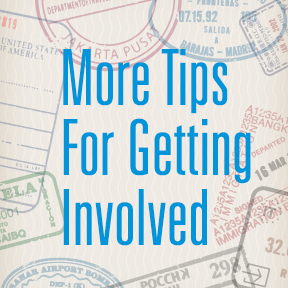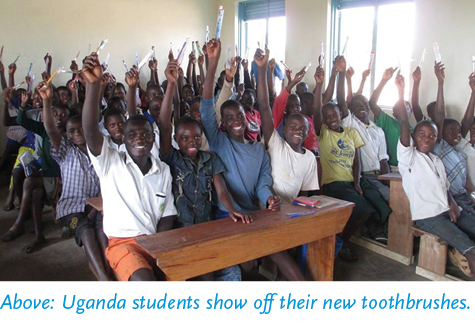
1. Find A Service Opportunity and Organization.
Dentists who are interested in getting involved in humanitarian service work have a plethora of resources at their disposal. The best place to search for opportunities and organizations is the “Shared Global Resources” section of the American Dental Association’s website (www.internationalvolunteer.ada.org). There, dentists can use search fields to look for various organizations (ones that have officially registered with ADA), peruse upcoming service trips to countries all over the world, and find various ways to serve (going on excursions to deliver care, provide instruction and clinical training in-country, and donate funds, supplies or equipment). The site also allows dentists to search for opportunities based on religious affiliation, if preferred.
Another way to find organizations and dental service opportunities is to conduct a Google search using such phrases as “dental service trips,” “dental mission trips,” “dentistry humanitarian trips,” or “dentists global service.”
Networking is also a good way to find dental service opportunities. Ask friends and colleagues if they have been on such a trip or know of anyone who has. Inquire among your associates when attending dental seminars and CE courses to find out if they have recommendations for service-related opportunities. Get in touch with your alma mater and see if they sponsor or recommend any groups. Rotary Clubs, Lions Clubs, and other service-related organizations may also have good leads. Another networking resource is through church or religious affiliations. Many congregations have missionaries or religious representatives who are currently living in various countries throughout the world. Such individuals will know of the emergent need in their international communities for dental services and may help identify opportunities for you and your team.
2. Properly Vet the Organizations.
Since not all non-profits are created equal, be sure to properly vet any organization before you get involved. Ask how long they’ve been in business, what kinds of contacts they have in-country, what security and safety plans they have established for their teams, and how much (if any) of the donated funds are used for administrative costs. Also, talk to people who have participated firsthand in the organization’s service trips.
3. Research Your Location.
Be sure to do your homework about the places you consider traveling to. Some places require specific vaccinations. Some places require certain visas. Some places have restrictions on the types of supplies and equipment you can take into the country, regardless of the type of work you’re doing. You’ll also want to make sure you fully understand the types of food you should eat and water you should (or shouldn’t) drink while visiting the country. You won’t do your patients any good if you spend your entire trip sick with an intestinal parasite, or worse.
 Remember that just because your heart is in the right place, doesn’t mean you can be foolish about your choices. You can’t assume that you’ll have the same level of safety and security as you find in the United States. As the saying goes, “You’re not in Kansas anymore.” Every country will have its own laws, customs and issues regarding health, safety and security. Specifics can be found on the U.S. Passports & International Travel website (www.travel.state.gov). Check out this website well in advance of any service trip. The site is forthright about the reality of the conditions around the world. Make sure you feel fully comfortable with the countries you plan to visit before you embark on any travel.
Remember that just because your heart is in the right place, doesn’t mean you can be foolish about your choices. You can’t assume that you’ll have the same level of safety and security as you find in the United States. As the saying goes, “You’re not in Kansas anymore.” Every country will have its own laws, customs and issues regarding health, safety and security. Specifics can be found on the U.S. Passports & International Travel website (www.travel.state.gov). Check out this website well in advance of any service trip. The site is forthright about the reality of the conditions around the world. Make sure you feel fully comfortable with the countries you plan to visit before you embark on any travel.
4. Don’t Forget Local Opportunities.
Going out of the country on dental service trips isn’t for everyone. And if you decide it isn’t for you, there are other ways to serve. You don’t have to leave the United States to have a meaningful dental service experience. There are many opportunities in local communities and states. Start by helping the underprivileged children and adults in your community. Consider offering dental services to the homeless population. Teach basic hygiene principles in elementary school assemblies. Opportunities are everywhere for people who want to give back and help the world become a kinder, healthier place.
You can also help fund service trips for other dentists. Both money and supplies are always needed for such trips and are greatly appreciated. In addition to dental supplies, many teams also take clothing, toys, personal hygiene kits, blankets, and newborn kits. Putting together these types of supplies is a great way for your entire dental team to get involved. Contact a charitable organization and see what is needed. Then spend some time in a team-building activity putting these supplies and kits together. As the Chinese philosopher Confucius once said, “The journey of a thousand miles begins with a single step.”
CLICK HERE to read “Create a Turning Point in Your Career Through Humanitarian Dentistry” from our Fall 2014 Issue. An Award-Winning Dentist Shares His Story and Tips of How to Serve Around the World.









